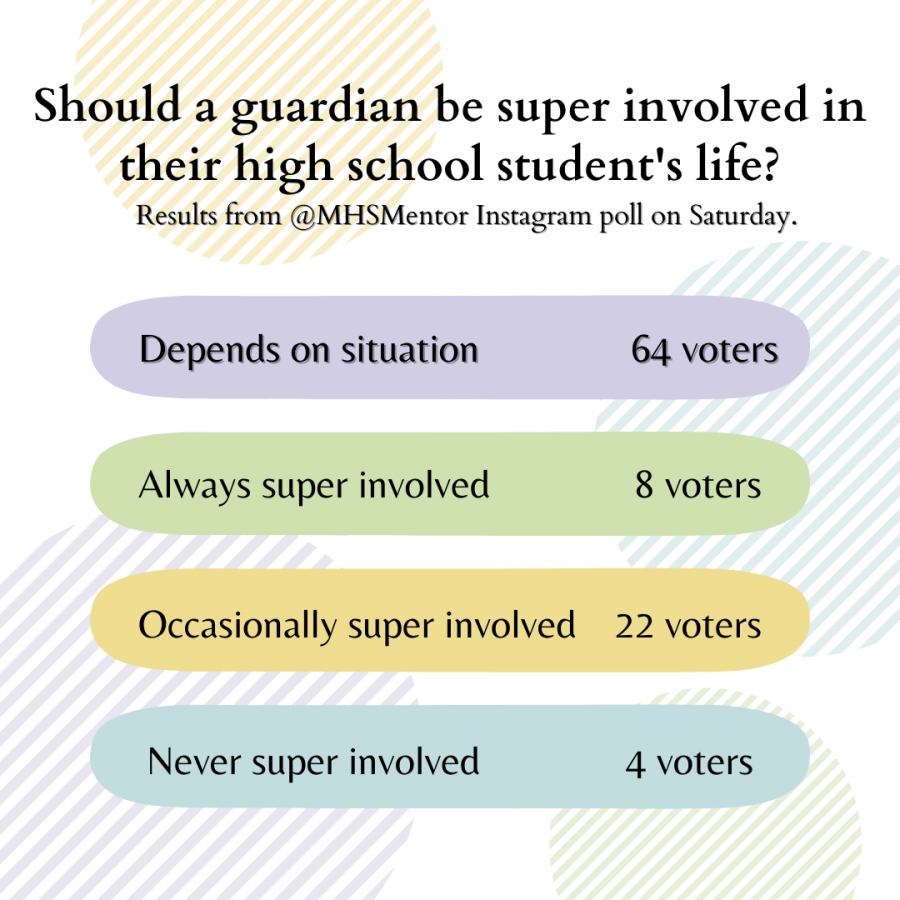Parents need to understand their children better
November 8, 2021
There is no handbook when it comes to raising a child, and it’s mostly trial and error. People who have more than one child understand this. It’s learning what kind of parent you need to be.
There are many different styles of parenting; some are good and beneficial for their child, and others are harmful and contribute to issues that arise in a child’s life.
From the anxiously involved helicopter parents to the obsessive overly involved ones, it’s unclear where the line is drawn, and there are a dozen questions. How involved should a parent be? Are you a helicopter parent without realizing? Is there a limit? What does your child need?
The Mentor Editorial Board believes that parents should ask their child questions in order to further understand their child’s needs and wants, grasping a better idea of how involved they need to be in the child’s daily life.
Overly involved parents are generally described as parents who micromanage their children and obsess over their goals, planning the child’s life according to what the parent wants, not the child.
These types of parents are considered a more extreme version of a helicopter parent — who is described as parents who pay extremely close attention to their child’s life and their experiences, usually dictating what a child can and can’t do, based on their idea of the child’s safety. Snowplow parents also fall into this category, who make sure to remove any obstacles in their child’s life and have their eye on their child’s success and future.
Both types of parenting are related to the idea of not knowing the child’s needs and controlling their entire life based on what the parent thinks is best.
Each of the parenting types have negative effects on their children. Both can cause dependency issues and result in the child not being able to navigate most of their life without holding someone’s hand. As the child gets older, they are less likely to know basic life skills that abled children should attain.
It also neglects to teach them right from wrong, especially snowplow and helicopter parents. They are the type of parents to rush to the school if their child gets in trouble and make up every excuse as to why they exhibited that kind of behavior in hopes to get them out of it. It can lead the child to make excuses every time, or to call on their parents to get them out of trouble when something bad happens.
That isn’t to say that a parent should neglect their child. Neglectful parenting also causes issues in a child’s life, causing lack of confidence as well as poor academic performance.
So what is that fine line? Where should we draw the line at involvement in a child’s life?
Being an involved parent isn’t a bad thing. It can help a child become confident and help them work towards their goals. It’s when parents are obsessively involved is when it becomes a problem.
The best way to go about understanding where to draw the line is by simply asking your child questions. “Do you need help with your homework,” or “Is there anything you need,” are great questions that can lead to a better understanding of their child.
Not every parent is the same, nor is every child. It’s precisely this that validates the reason why a parent should ask their child questions. Some children benefit from structure and schedules, while others may not. It is a parent’s responsibility to put forth the effort to comprehend the child’s preferred learning style and functional needs.
Being involved enough to ask your child questions and observe your child to understand their needs and wants can help ensure you aren’t controlling their life or obsessing over their future.


